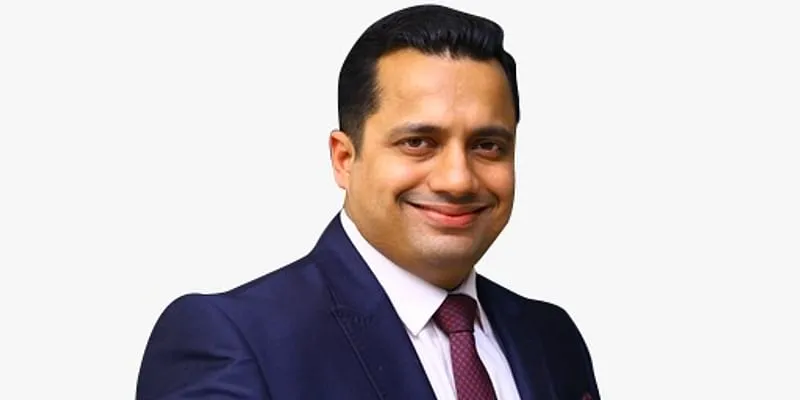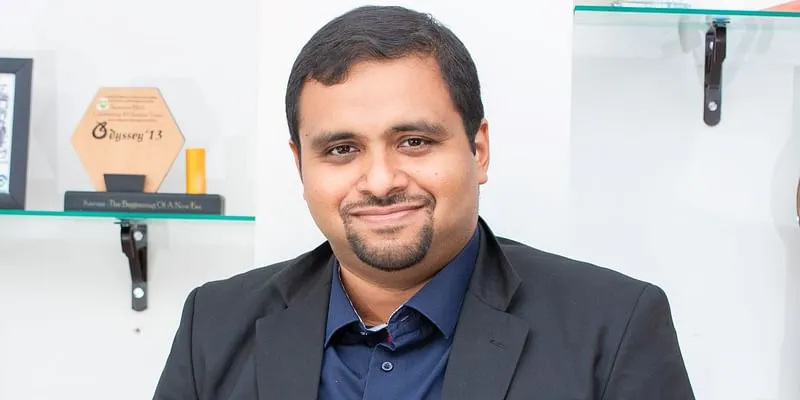Can MSMEs and small businesses survive a potential third wave?
Amid speculations of COVID-19’s third wave hitting India in August, one of the biggest questions facing us is -will MSMEs and small businesses survive another onslaught? Experts are positive, and SMBStory has decoded the ‘how?’
For twenty-three years, Nagpur-based SEE-Tech Solutions has been implementing energy efficiency projects around the country. Its consultants would visit project sites across India to collect data and insights before providing recommendations to clients.
Then came the first wave of COVID-19 in 2020, which pushed SEE-Tech’s founder Milind Chittawar to new limits. Like several other small and medium enterprises (SMEs), SEE-Tech too faced survival anxiety, and bore the brunt of the pandemic’s devastating impact on business continuity, labour force, revenue, and other factors.
For Milind though, the pandemic was a clarion call for innovation. He quickly set about digitising his enterprise and transforming processes to keep pace with time. At SEE-Tech, the new processes help eliminate site visits, touchpoints and face-to-face interactions. Data is now collected by portable IoT devices and transferred to an analytical platform. Recommendations are shared on user dashboards.
Besides adding transparency and efficiency, the new system is a great value add for clients. But it took a pandemic for the businessman in Milind to push for such extreme innovation, a fact he sometimes regrets.
SEE-Tech is just one of many MSMEs that, faced with the reality of a total wipe down, went on to completely transform after the first wave, says Amit Kumar, CEO, and Co-founder, MSMEx, an edtech platform providing business advisory and consulting services to MSMEs.
According to Amit, if not all, many MSMEs are now better prepared to survive a new onslaught of the COVID-19 pandemic, if any.
“The lockdown in 2020 hit every business, as it was completely unexpected. While they were still getting set to count their losses, the second wave struck, and this time, it dealt a mental blow as well,” says Amit.
He adds that coping with such unprecedented challenges has only enabled MSMEs to emerge stronger, giving many entrepreneurs a first-hand experience and understanding of running a business in adverse times.
India’s MSME industry is the largest in the world, next only to China. And its sheer size dictates that its challenges are multi-faceted.
Dr Vivek Bindra, founder of Bada Business, an online business skill training platform, says that if lockdowns get mandated again, MSMEs catering to non-essential businesses would still continue to encounter issues like cash flow shortage, delinquencies, labour shortage, and more.

Vivek Bindra, Founder and CEO, Bada Business
However, he too believes there is a better sense of preparedness among enterprises, especially because of the increased awareness about the disease.
Lessons learnt?
It was clear to see that enterprises that pivoted or underwent a digital transformation persisted through the first two waves.
Traditional enterprises that had been running the same way for two or more generations were forced to go digital or face closure. Many chose the former, but sadly, some others turned to the latter.
A Dun & Bradstreet report of April 2021 states that 82 percent of small businesses they surveyed had adopted digitisation, out of which 54 percent of businesses witnessed a reduction in cost, 51 percent saw enhanced competitiveness and a better understanding of customer behaviour, and 45 percent of companies saw massive benefits through digitisation.
This means these small businesses did not just survive, but thrived amid the tough pandemic conditions, and are now out of the danger of shutting down.
And although the number of MSMEs that have opted for digitisation is far less than one would expect, experts believe these enterprises have set the right example, and entry barriers are coming down.
“It is to be remembered that businesses that remain resilient and waver through this crisis today, will be the frontrunners of tomorrow,” remarks Vivek.
According to him, businesses must apply the learnings from the past two waves - focus on profitability, clear inventories, reduce capex, maintain transparent employee engagement to accommodate remote or hybrid models of work, manage business costs and make timely vendor payments to streamline supply chain management.
Ashutosh Kharangate, Managing Director and Founder of Mangal Analytics and Research Consulting, believes supply chains have become more robust, besides other contributing factors.

Ashutosh Kharangate, Founder and Managing Director, MARC
“Most MSMEs have found alternate routes or suppliers. Even in the case of labour supply, which is another issue faced during the pandemic. MSMEs have managed to secure a more robust supply of labour. Initiatives from the central government, like the extended credit limits, have also helped,” he says.
Steps to help MSMEs breathe
Ashutosh also asserts that it is critical to look at MSMEs sector-wise.
“MSMEs in certain sectors like tourism, transport, entertainment have suffered tremendously. Many have shut down. Others are gasping for air. The government needs to offer them respite by deferring EMIs, as they had done during the first wave. A period of 6 months to 12 months on a case-to-case basis must be considered,” he opines.
Additionally, state governments can waive off most charges which are usage dependent, and possibly defer other charges. Cash flow will be key for most MSMEs. They will only be able to start their engine if they have money. The government can also consider prioritising MSMEs for purchases, and ensure a timely payment / release of blocked payments to them, he adds.
Recently, Finance Minister Nirmala Sitharaman also flagged the problem of delayed payments during the question hour in Rajya Sabha. She said that the issue of the government dues to MSMEs is a critical one, and has been reviewed over the past year from the point of view of the central government and the various departments which owe money to the MSMEs, inclusive of Public Sector Undertakings (PSUs).
She also said that it has been decided by the central government that these payments will be made as per the standard rule within 45 days.
According to Amit, solving the issue of delayed payments, increasing moratorium, and giving small grants to MSMEs and small businesses will help them revive, and work better than loans, which will only pile up debts when the business is already gloomy.
Hardika Shah, Founder and CEO of Kinara Capital believes that the government should consider pure working capital relief, especially for micro-businesses, so that they can survive yet another pandemic wave.

Hardika Shah, Founder and CEO, Kinara Capital
Digitisation is a ‘must’
Undoubtedly, MSMEs have seen an evolution of a different kind in the last one and a half years. However, experts believe that their ‘conventional nature’ and lack of resources and skills prevent them from taking quick decisions on changing their business running patterns. A major reason why not all MSMEs could transform themselves in the first two waves.
There has been a concerted effort by most MSMEs to go digital both in terms of internal functioning and external market environment. However, due to factors like lack of resources, finances, and easy access to quality service providers, most MSMEs are still in the process of transformation, says Ashutosh
He remarks that approximately 25-30 percent of MSMEs have gone digital in these times, while a good 60-75 percent are still in the process of doing so.
Hardika also emphasises that any type of MSME seeking ways to survive the third wave of the pandemic, or in a quest to grow their business, must start adopting digital methods to conduct all aspects of their business -- from sourcing materials, marketing/selling, invoicing their customers, collecting and making payments digitally, to signing up to promote their business online via industry-specific platforms.
In the pandemic, if any sector was able to be of any service, it was only because of digitisation, be it edtech or healthtech. Now, for MSMEs, if there is a way to cope with the third wave, there is no ignoring the digital wave.
Edited by Anju Narayanan



![[India MSME Summit 2021] ‘Koshish kar, toh hal niklega’: What MSMEs need to do to get out of the COVID-19 depression](https://images.yourstory.com/cs/21/f49f80307d7911eaa66f3b309d9a28f5/Image40o1-1624777386232.jpg?fm=png&auto=format&h=100&w=100&crop=entropy&fit=crop)





